News
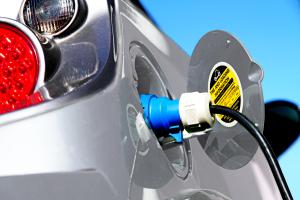
October 3, 2018
Today, electric vehicles (EVs) make up just a small part of the U.S. road fleet, but they are gaining ground in some regions. While EVs hold promise for lowering costs and air pollutant emissions from auto travel, among other benefits, their growth raises questions about the changes needed to support this transition. How much charging infrastructure will be needed, and what role should utilities...
Read more
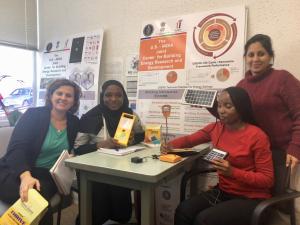
September 26, 2018
As part of Berkeley Lab's mission to bring science to the world, the Energy Technologies Area is hosting three visiting scientists through the U.S. Department of State's Bureau of Educational and Cultural Affairs TechWomen program.The goal is to empower, connect and support the next generation of women leaders in science, technology, engineering and mathematics (STEM) by providing them access and...
Read more
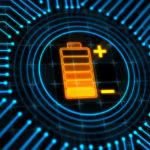
September 3, 2018
Rick Perry has awarded a Secretary of Energy’s Achievement Award to the scientific and operational leadership team for the Joint Center for Energy Storage Research (JCESR).The center seeks to develop high-performance, low-cost energy storage technologies for transportation and the electric grid. The award-winning team includes Berkeley Lab researchers Nitash Balsara, Gerbrand Ceder, and Kristin...
Read more

August 1, 2018
Adam Weber, who leads the Energy Conversion Group within Lawrence Berkeley National Laboratory's Energy Technologies Area, was recently named to the Electrochemical Society's 2018 Class of Fellows. The fellows are chosen for their scientific achievements, leadership and service to the society.Weber's current research involves understanding and optimizing fuel-cell and electrolyzer performance and...
Read more
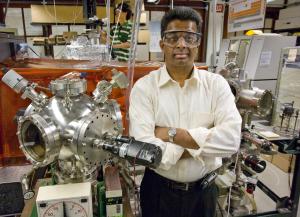
July 19, 2018
After serving four years as Berkeley Lab's Associate Director for Energy Technologies, Ramamoorthy Ramesh will be returning to his research in ultra low-power electronics while also helping to lead a major Berkeley Lab research initiative in next-generation, energy-efficient microelectronics.This new initiative has been dubbed "Beyond Moore's Law," as it seeks the solution to what will happen when...
Read more

July 19, 2018
Ravi Prasher has been appointed Associate Laboratory Director for Energy Technologies at the Department of Energy's Lawrence Berkeley National Laboratory (Berkeley Lab). The announcement follows an international search.Prasher, an internationally renowned scientist in the field of thermal energy science and technologies, has been director of Berkeley Lab's Energy Storage and Distributed Resources...
Read more
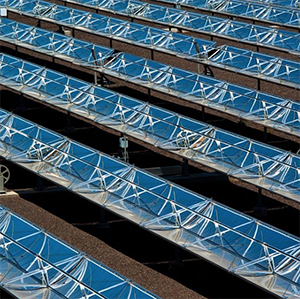
June 21, 2018
A team led by ETA’s Robert Kostecki is one of 14 awardees whose research is focused on reducing the cost of solar-thermal desalination and helping the technology reach new markets, including areas that are not connected to the electric grid. Read the full announcement on the DOE energy.gov website....
Read more

May 30, 2018
Scientists can computationally predict all sorts of novel materials but, until now, had no way of knowing if it could actually be synthesized. Berkeley Lab researchers Muratahan Aykol, Shyam Dwaraknath, Wenhao Sun, and Kristin Persson have now found a chemically sensitive, rigorous thermodynamic limit to determine when a material can’t be made, a discovery which could greatly accelerate...
Read more

March 29, 2018
Li-ion battery development relies on the chemical reaction of the active elements in the electrode’s materials. A promising new strategy uses an unconventional element typically believed to be inactive. In a recent paper, ETA’s Wei Tong and Bryan McCloskey, and Wanli Yang of the ALS, reveal experimental evidence to confirm the contribution of this unconventional element. Read the full article...
Read more
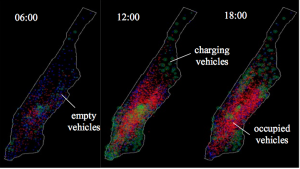
March 28, 2018
It may be only a matter of time before urban dwellers can hail a self-driving taxi, so researchers at the Department of Energy’s Lawrence Berkeley National Laboratory (Berkeley Lab) and UC Berkeley decided to analyze the cost, energy, and environmental implications of a fleet of self-driving electric vehicles operating in Manhattan.Using models they built and data from more than 10 million taxi...
Read more
March 22, 2018
On World Water Day, watch researcher Emily Tow of the Energy Technologies Area talk about her project to treat municipal wastewater in an energy-efficient way and bring it up to drinking water standards. Using the Molecular Foundry, she is looking at biofouling of membranes used to treat wastewater....
Read more
March 20, 2018
Our second video for World Water Day this week features Chinmayee Subban, a researcher in the Energy Technologies Area. She discusses her technology for removing salt from low salinity water, a tech solution that could provide an alternative irrigation source for California’s agriculture needs....
Read more
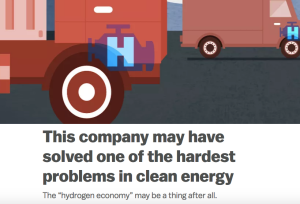
February 21, 2018
Adam Weber, leader of the Energy Conversion Group at Lawrence Berkeley National Laboratory, was quoted in a Vox story about efforts at commercial-scale hydrogen production.There's currently “a resurgence of hydrogen-based activity around the world,” Weber says in the Feb. 16 story, "This company may have solved one of the hardest problems in clean energy." Weber refers to the pursuit of...
Read more

December 8, 2017
Kristin Persson of the Energy Technologies Area was a recent guest on the NPR radio program "Marketplace," where she discussed developments in battery technology. Lithium-ion batteries currently in use are "highly optimized" and not likely to improve, she says. "If you're going to do a better battery, you have to discover a completely new material." Read or listen to the full interivew at:...
Read more

November 21, 2017
The China Energy Group took home a prestigious R&D 100 Award for its innovative Benchmarking and Energy Saving Tool for Low-Carbon Cities (BEST Cities), which provides software for low-carbon planning that users can easily install and run. Berkeley Lab also won awards for technologies that help determine how solar energy affects the grid; understand the functions of genes in microbes under...
Read more
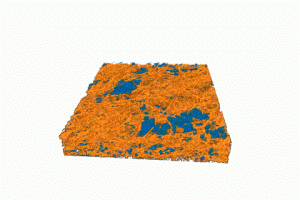
November 13, 2017
Like a well-tended greenhouse garden, a specialized type of hydrogen fuel cell – which shows promise as a clean, renewable next-generation power source for vehicles and other uses – requires precise temperature and moisture controls to be at its best. If the internal conditions are too dry or too wet, the fuel cell won’t function well.But seeing inside a working fuel cell at the tiny scales...
Read more
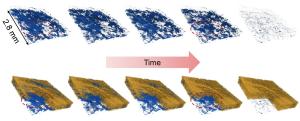
November 10, 2017
Animation – This animated 3-D rendering, generated by an X-ray-based imaging technique at Berkeley Lab's Advanced Light Source, shows tiny pockets of water (blue) in a fibrous sample. The X-ray experiments showed how moisture and temperature can affect the performance of fuel-cell components. (Credit: Berkeley Lab)Like a well-tended greenhouse garden, a specialized type of hydrogen fuel cell –...
Read more
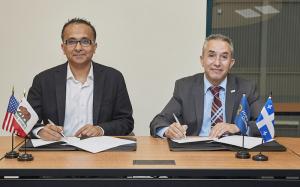
October 26, 2017
Hydro-Québec and the U.S. Department of Energy's Lawrence Berkeley National Laboratory (Berkeley Lab) have agreed to explore collaborations toward the research and development of manufacturing and scale-up technology to advance transportation electrification and energy storage. The two institutions have signed a Memorandum of Understanding (MOU) to assess the feasibility of creating a Québec...
Read more

October 24, 2017
Ravi Prasher, division director of the Energy Storage & Distributed Resources Division at Berkeley Lab, recently gave a talk at UC Berkeley about the electricity grid. Below is an excerpt and video of his talk.Fossil fuels have powered economic growth and improved quality of life for more than two centuries – and for good reason. They can store a great deal of energy, and it can be used any...
Read more
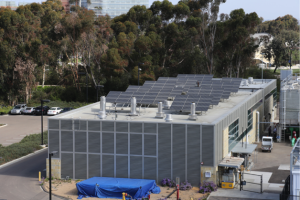
September 27, 2017
As the U.S. electricity grid continues to modernize, it will mean things like better reliability and resilience, lower environmental impacts, greater integration of renewable energy, as well as new computing and communications technologies to monitor and manage the increasing number of devices that connect to the grid. However, that enhanced connectivity for grid operators and consumers also opens...
Read more
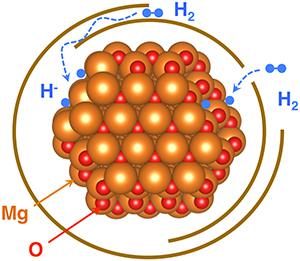
September 18, 2017
New projects for hydrogen storage and fuel cell performance aim to bring down cost of fuel cell electric vehicles.A powdery mix of metal nanocrystals wrapped in single-layer sheets of carbon atoms, developed at the Department of Energy's Lawrence Berkeley National Laboratory (Berkeley Lab), shows promise for safely storing hydrogen for use with fuel cells for passenger vehicles and other uses. And...
Read more
August 28, 2017
U.S.-India Consortium Will Advance Cutting-Edge Technologies that Promote Greater Energy Independence and Economic GrowthBerkeley Lab's Energy Storage and Distributed Resources Division (ESDR) will be part of a consortium for a joint U.S.-India five-year project that will help advance the development of the power grid.ESDR will join a team led by Washington State University. The consortium has...
Read more
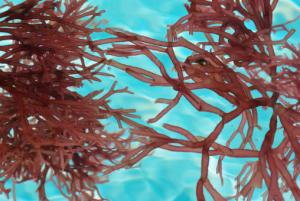
June 13, 2017
Surprising discovery is a major advance for low-cost, high-energy batteriesLithium-sulfur batteries have great potential as a low-cost, high-energy, energy source for both vehicle and grid applications. However, they suffer from significant capacity fading. Now scientists from the Department of Energy's Lawrence Berkeley National Laboratory (Berkeley Lab) have made a surprising discovery that...
Read more
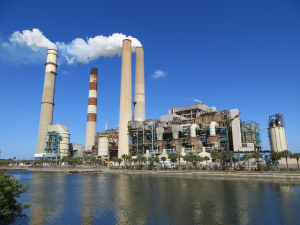
April 14, 2017
Vast amounts of energy are wasted every year in the form of heat. A new project led by the Department of Energy's Lawrence Berkeley National Lab (Berkeley Lab) seeks to efficiently capture that heat and convert it to electricity, potentially saving California up to $385 million per year.With a $2-million grant from the California Energy Commission (CEC), Berkeley Lab is partnering with Alphabet...
Read more
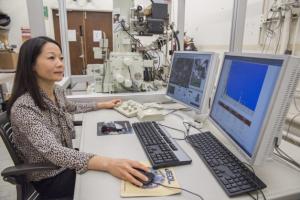
February 6, 2017
Using advanced imaging techniques, scientists at the Department of Energy’s Lawrence Berkeley National Laboratory (Berkeley Lab) have been able to observe what exactly happens inside a cathode particle as lithium-ion batteries are charged and discharged.In a research project led by Berkeley Lab materials chemist Guoying Chen, the researchers uncovered important insights into reactions in cathode...
Read more